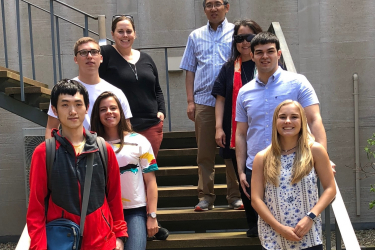
Project Description:
Dr. Hoffman will work with students to clone the human Lynx gene into a viral vector and express it in a mouse model. In addition, she will train students in electrophysiology and assess the effects of the human Lynx protein on synaptic plasticity. Dr. Miwa will be responsible for injection of the Lynx viral vector into a Lynx KO mouse, electrophysiological assessment, and oversight of the proposed behavioral assessments. Lastly, Dr. IItzkowitz will assist in establishing the chronic social defeat stress behavioral paradigm, and other assessments of social behavior.
Undergraduates will be trained to execute cloning in viral vector and molecular biology techniques such as western blotting and Immunohistochemistry using brain tissue. Additionally, they will all be be expected to become proficient in animal handling and will have the option to learn electrophysiology and/or a variety of behavioral assessments.
The scope of this project ranges from molecular biology to neurophysiology to behavioral science. Students will have the capability to work on a project that follows the effects of a single human genetic mutation from the molecular and cellular effects of that mutation to the resulting outcomes on animal behavior. Although these all fall under the umbrella of biology, the diversity of experience of each participating faculty member will create a unique learning opportunity for each of the students.





